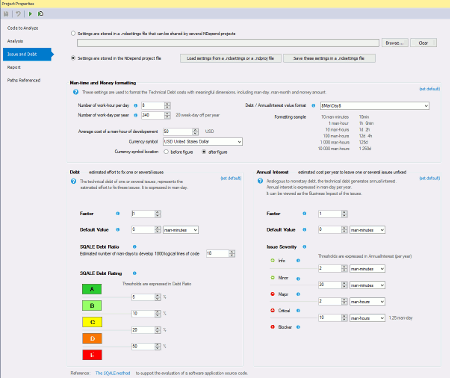NDepend 2017.1: Get Estimating!
It’s a new year, and with that comes a new version of NDepend - 2017.1. I’ve looked at NDepend before and am a big fan. This time they’ve added a feature that I’m particularly excited about: Technical Debt Estimation
One of the challenges I’ve seen when trying to communicate to non-technical folks about things I find in NDepend is cost. “How much is it going to cost to fix issue X?” Estimation is a tough thing. Now NDepend can help you with that.
First, in your project you need to configure your Issue and Debt settings. This is where you set things like…
- How many work hours are in a day / work days in a year?
- What’s the average cost of a person-hour (and in which currency)?
- What are the various thresholds that define issue severity levels?
There are quite a lot of configuration options. Luckily, NDepend provides a lot of good doc on what the settings mean so you can configure them based on your project/company. And if you have a lot of projects that use the same settings, you can share the settings with a central .ndsettings file.
For my example, I’m just using the default settings.
Once you have that set up and you run analysis, your dashboard will show you your debt “rating” based on the SQALE method and estimate the amount of effort to improve the code to the next rating.
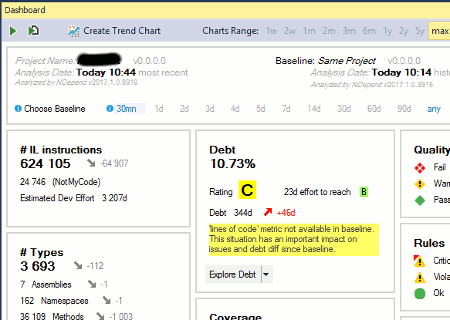
The little “Explore Debt” button there will open up a query window that shows, for example, how much it would cost to fix each of the various queries you’ve applied to the code.
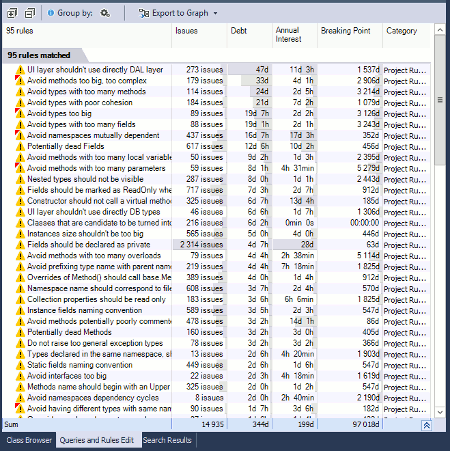
In this case, you can see that this project has some pretty extensive debt related to the UI talking directly to the data access layer - 47 days’ worth if I wanted to fix it all! However, I might be able to fix up some static field naming conventions in a couple of days and save myself a day’s worth of interest accumulating each year - head it off before it gets too big.
I can also look at a prioritized list of types to fix - places I might get the biggest bang for my buck.
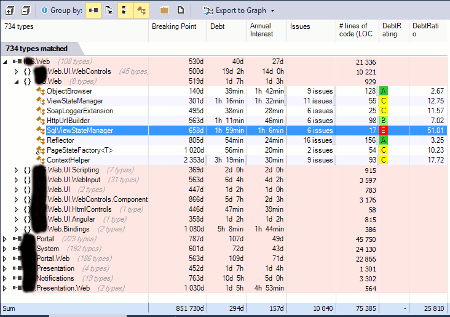
How much is it going to cost in terms of money, not just time?
Simple enough, just update your Issue and Debt settings to show both time and money…

…and the report automatically updates to reflect that:
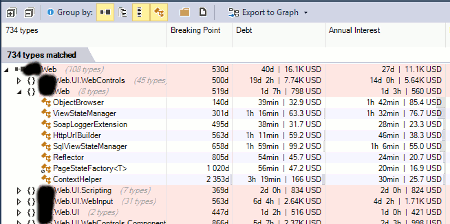
Obviously it may take some tweaking of the settings to reflect the situation in your environment, but this is a huge help when it comes to communicating cost/benefit when looking to update code that is working but is worth cleaning up.
And, of course, you shouldn’t let anyone instantly just take it as gospel. It’s a tool. It will help you get started and make it easier to communicate, but you really shouldn’t substitute a generated estimate for something provided by the people actually doing the work.
Go grab yourself a copy of NDepend 2017 and get estimating!
Full disclosure: I got a free personal license from Patrick at NDepend. However, we have also purchased several licenses at work and make use of it to great benefit.
